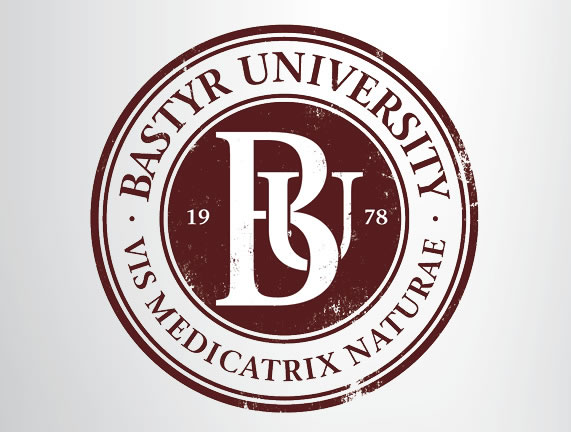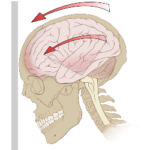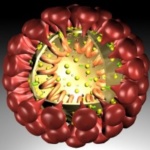Naturopathic Medicine
Naturopathic physicians use traditional healing methods both validated by science and passed down through centuries of clinical observation. Naturopathic medical philosophy follows a therapeutic order and set of principles that starts with the least force and moves to more invasive measures as necessary. Naturopaths focus on the individual rather than just the disease, incorporating proactive prevention and comprehensive diagnosis in patient’s treatment plans. One of the core beliefs in Naturopathic philosophy is that we have an inherent ability to restore and maintain optimal health given the ability to do so and it is the doctor’s role to identify and remove barriers or obstacles to cure.
Natural forces within us are the true healers of disease.
~Hippocrates
Naturopathic physicians work in private practices, hospitals, clinics and community health centers. NDs practice throughout the United States and Canada. Qualified naturopathic doctors undergo rigorous training before they become licensed health-care practitioners. See below for overview of Naturopathic education.
NDs treat all medical conditions and can provide both individual and family health care. NDs can perform minor surgeries, such as removing cysts or stitching up superficial wounds. However, they do not practice major surgery. NDs are trained to utilize prescription drugs, although the emphasis of naturopathic medicine is the use of natural healing agents. See the principles of Naturopathic medicine below:
Vis Medicatrix Naturae: The Healing Power of Nature
The healing power of nature is the inherent self-organizing and healing process of living systems. Naturopathic medicine recognizes this healing process to be ordered and intelligent. It is the naturopathic physician’s role to support, facilitate and augment this process by identifying and removing obstacles to health and recovery, and by supporting the creation of a healthy internal and external environment.
Primum Non Nocere: First Do No Harm
Naturopathic physicians utilize methods and medicinal substances which minimize the risk of harmful effects, and apply the least possible force or intervention necessary to diagnose illness and restore health. Whenever possible the suppression of symptoms is avoided as suppression generally interferes with the healing process.
Docere: Doctor as Teacher
The original meaning of the word “doctor” is teacher. A principal objective of naturopathic medicine is to educate the patient and emphasize self-responsibility for health. We also recognize and employ the therapeutic potential of the doctor-patient relationship.
Tolle Totem: Treat the Whole Person
Health or disease comes from a complex interaction of mental, emotional, spiritual, physical, dietary, genetic, environmental, lifestyle, and other factors. We treat the whole person, taking these factors into account.
Tolle Causam: Find The Cause
Every illness has an underlying cause, often in aspects of the lifestyle, diet or habits of the individual. A naturopathic physician is trained to find and remove the underlying cause of a disease.
Prevention
Our approach to health care can prevent minor illnesses from developing into more serious diseases. Patients are taught the principles with which to live a healthy life and by following these principles, they can prevent major illnesses.
Wellness
Establishing and maintaining optimum health and balance. Wellness is a state of being healthy, characterized by positive emotion, thought, and action. Wellness is inherent in everyone no matter what dis-ease(s) are being experienced. If wellness is really recognized and experienced by an individual, it will more quickly heal a given dis-ease than direct treatment of the dis-ease alone.
Naturopathic Education
 Naturopathic doctors (ND’s) are family practice-oriented primary health care physicians. Training consists of a four year, graduate level, accredited naturopathic medical school. The five existing colleges in the US are accredited by the Council on Naturopathic Medical Education, a specialized accreditor recognized by the US Department of Education. The first two years of schooling are like those of a conventional medical doctor (MD), the majority of classes consisting of basic sciences (anatomy, cellular biology, microbiology, pathology, etc). The additional two to four years consist of specialized academic courses (i.e. cardiology, EENT, gynecology, gastroenterology, urology, etc) as well as courses in naturopathic therapeutics like herbal medicine, homeopathy, body work, spinal manipulation, physiotherapy, hydrotherapy, clinical nutrition, and counseling. After graduation, NDs must pass national board examination to become licensed.
Naturopathic doctors (ND’s) are family practice-oriented primary health care physicians. Training consists of a four year, graduate level, accredited naturopathic medical school. The five existing colleges in the US are accredited by the Council on Naturopathic Medical Education, a specialized accreditor recognized by the US Department of Education. The first two years of schooling are like those of a conventional medical doctor (MD), the majority of classes consisting of basic sciences (anatomy, cellular biology, microbiology, pathology, etc). The additional two to four years consist of specialized academic courses (i.e. cardiology, EENT, gynecology, gastroenterology, urology, etc) as well as courses in naturopathic therapeutics like herbal medicine, homeopathy, body work, spinal manipulation, physiotherapy, hydrotherapy, clinical nutrition, and counseling. After graduation, NDs must pass national board examination to become licensed.
Comparison with other medical programs?
Naturopathic physicians (ND’s) undergo training that is similar in structure and scope to that of medical and osteopathic doctors. Naturopathic medical colleges are four-year graduate schools with rigorous admissions requirements comparable to other medical schools. The Doctor of Naturopathic Medicine (ND) degree is awarded after classroom, clinic and practical study.
ND’s are trained in medical sciences including anatomy, physiology, biochemistry, microbiology, immunology, pharmacology, cardiology, neurology, radiology, minor surgery, obstetrics, gynecology, embryology, pediatrics, psychology, pharmacology, minor surgery, dermatology, and clinical and physical diagnosis.
The training also includes extensive study of naturopathic philosophy and therapeutics including therapeutic nutrition, botanical medicine, homeopathy, ayurvedic medicine, hydrotherapy, manipulative therapy, and counseling. Because coursework in natural therapeutics is added to a standard medical curriculum, naturopathic doctors often receive significantly more hours of classroom education in these areas than the graduates of many leading medical schools, including Yale, Stanford, and Johns Hopkins.
Comparison of ND and MD training and scope
Like many states and provinces, Washington’s laws require graduates of naturopathic medical schools to pass rigorous board examinations in order to qualify for licensure. Washington NDs must also complete 20 hours annually of continuing education training in order to maintain their license.


